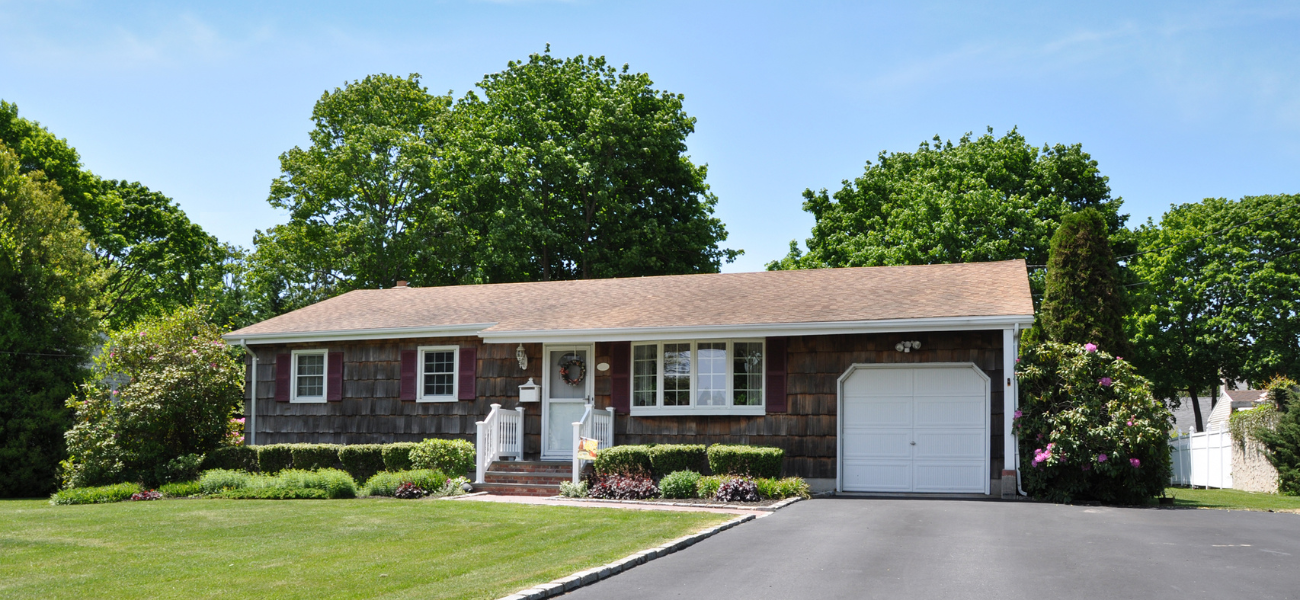Stay ahead of the curve as a political insider with deep policy analysis, daily briefings and policy-shaping tools.
Request a DemoHOA bill advances in the Legislature

A ranch-style home in a residential neighborhood. (Credit: USGirl)
The Gist
Bills geared to addressing challenges facing homeowners’ associations and the residents who live in such community-governed places have advanced in the Georgia Legislature — but not without some bipartisan wrangling.
On Tuesday, the Senate passed Senate Resolution 37, which created the Senate Property Owners’ Associations, Homeowners’ Associations, and Condominium Associations Study Committee.
Sen. Donzella James, D-Atlanta, one of the bill’s sponsors, had been trying for two years to get the legislation passed. Parts of James’ other HOA-related bills were attached to a House bill that also passed the Senate on Tuesday, day 39 of the 40-day session.
The Senate also passed House Bill 220, which requires community-governed associations to notify in writing a home or condo owner of a covenant breach — such as painting their house a color not approved by the association, and give them time to fix it before taking legal action. The bill, sponsored by Rep. Rob Leverett, R-Elberton, passed 51-2. The bill returns to the House for its review of the Senate’s amendments.

Sine Die, the final day of the session, is today.
What’s Happening
Passing SR 37 is a major step in James’ three-year effort to get legislation passed that would regulate more closely community-run associations.
“It was crucial because now we’ll take a serious look at it with people who have been assigned who have no strong contact with HOAs at all,” James told State Affairs.
In last-minute maneuvering, parts of James’ other HOA bills were attached to HB 220. That bill was amended to include provisions that prevent homeowners from losing their right to vote in the HOA if they owe a fee. It also ensures HOA meetings and elections are held as long as 5% of the owners ask for it, and that HOAs abide by nonprofit laws.
“This amendment is simple but it’s very necessary,” Sen. Matt Brass, R-Newnan, told his peers Tuesday, crediting James with bringing the HOA issues to his attention.
“This amendment is a small step forward for all these bad actors in HOAs, and not all HOAs are bad,” said Brass. “But there are some bad actors out there.This amendment is a message to them that we’re coming for you.”
Why It Matters
James got involved in the issue three years ago after attending a meeting where residents in several Douglas County subdivisions talked about problems they were having with their HOAs.
That meeting subsequently led to the launch of HOA boot camps to help people learn about community-run associations.
“We did help a lot of people,” James said. “But I realized that the problem was with the law, and with them [homeowners] signing those covenants at the closing of the house and not really being advised properly.”
As it stands now, James said “There are no [Georgia] regulations.The only thing that controls an HOA or a COA [condominium owners association] is the covenant that you signed, and with them signing those covenants at the closing of the house, and not really being advised properly.”
As a result, James initiated a series of hearings last summer on the issue. The hearings drew lots of people who were having trouble with their HOAs, including many from Brass’ district. James brought the issue to the attention of Brass, chair of the influential Senate Rules Committee, who ultimately helped advance the bills.
“What Brass did with them is he went in each one and took a major part out and put it in as an amendment to somebody else’s bill,” James said. “We couldn’t write the whole bill all over again. We could only amend it. And so that’s what he did.”
In similar fashion, Leverett told State Affairs, he brought his bill after groups representing homeowners’ and condo associations came to him expressing concern about approaching homeowners in person about covenant violations because of the potential physical danger it could create.
What’s Next?
The Senate Property Owners’ Associations, Homeowners’ Associations, and Condominium Associations Study Committee will report its findings and recommendations to next year’s General Assembly once hearings are held later this year.
“I see positive movement. It’s a good start,” James said of the creation of the study committee. “What it will do is give us a chance to look at everything that wasn’t included in the amendment to HB 220.”
Have questions? Contact Tammy Joyner on X @lvjoyner or at [email protected].
And subscribe to State Affairs so you do not miss any election news you need to know.
X @StateAffairsGA
Facebook @StateAffairsGA
Instagram @StateAffairsGA
LinkedIn @StateAffairs
Related stories:
Professionals still face licensing delays amid state’s transition to online system
The Gist Georgia’s professionals and business owners are still struggling to obtain professional licenses in a timely manner. As the Secretary of State’s Office rolls out its new Georgia Online Application Licensing System to expedite the process, the efficiency of this new process is being put to the test. What’s Happening Thursday morning at the …
Controversy over AP African American Studies class grows
Rashad Brown has been teaching Advanced Placement African American Studies at Atlanta’s Maynard Jackson High School for three years. He’ll continue to do so — even though the state’s top education official removed it from the list of state-funded course offerings for the upcoming school year. While Brown prepares to start teaching his class on …
Students, teachers, lawmakers blast decision to end AP African American history classes
ATLANTA — A coalition of lawmakers, civil rights leaders, clergy, educators and students Wednesday called on the state’s education czar to rescind his decision to drop an advanced placement African American studies class from the state’s curriculum for the upcoming school year. “This decision is the latest attack in a long-running GOP assault on Georgia’s …
Kamala Harris’ presidential bid reinvigorates Georgia Democrats
Georgia Democrats have gained new momentum heading into the November election, propelled by President Joe Biden’s decision to bow out of his reelection bid and hand the reins to Vice President Kamala Harris. The historic decision, announced Sunday, is expected to prove pivotal in the national and state political arenas and breathe new life and …




